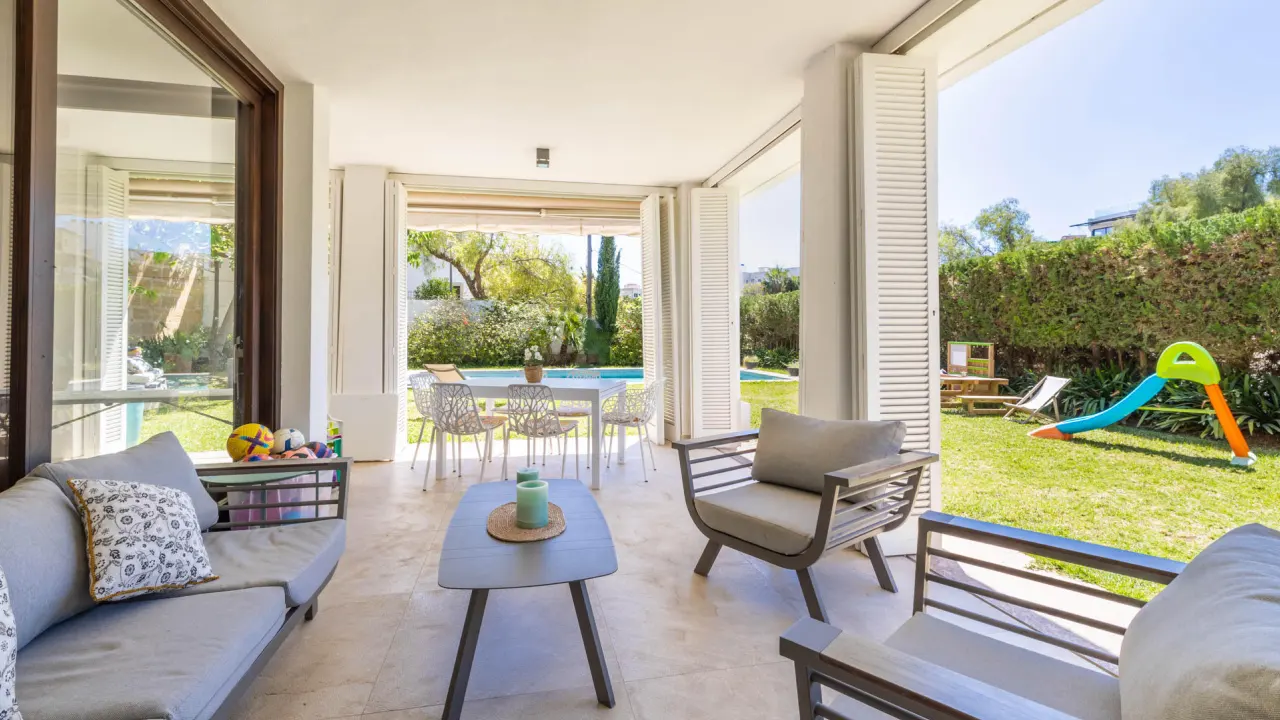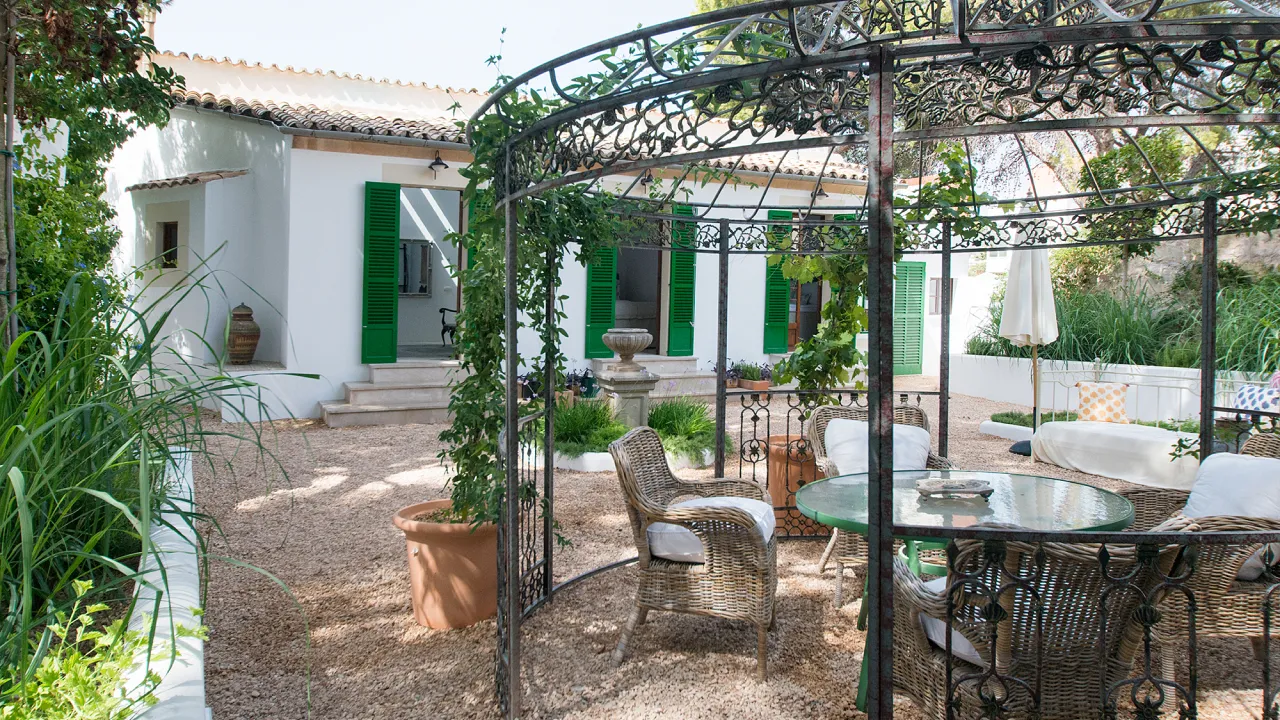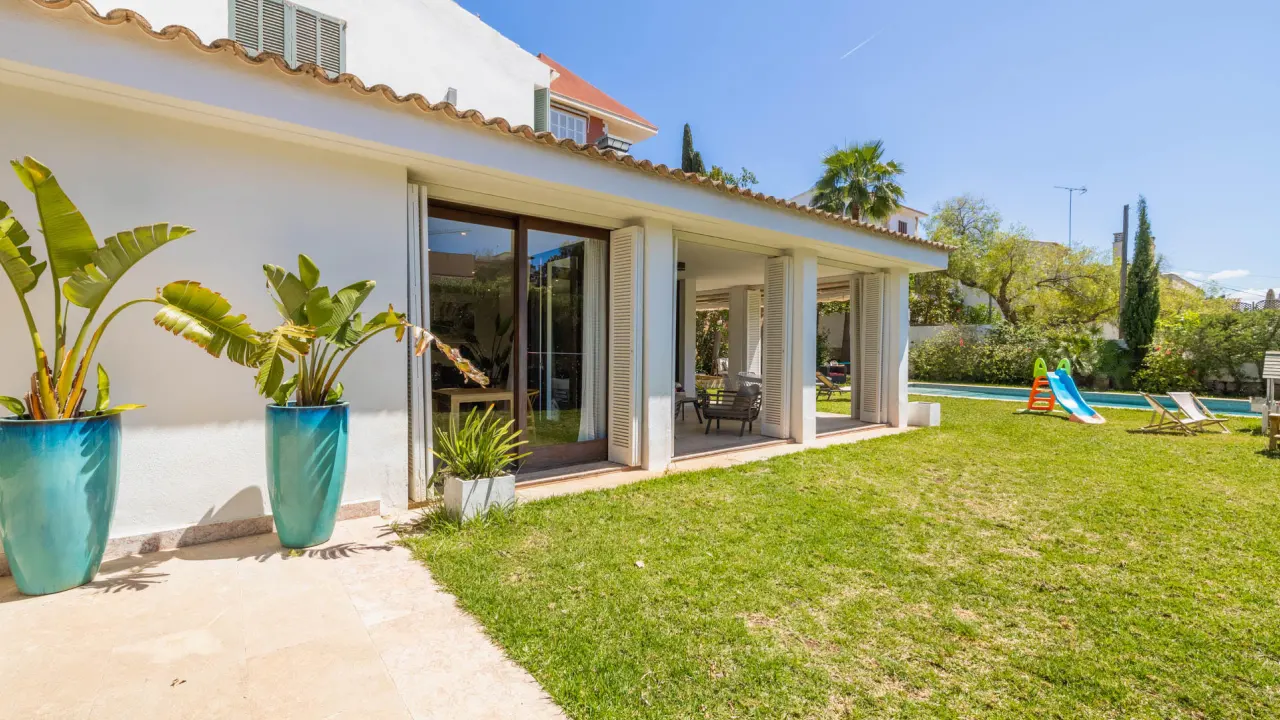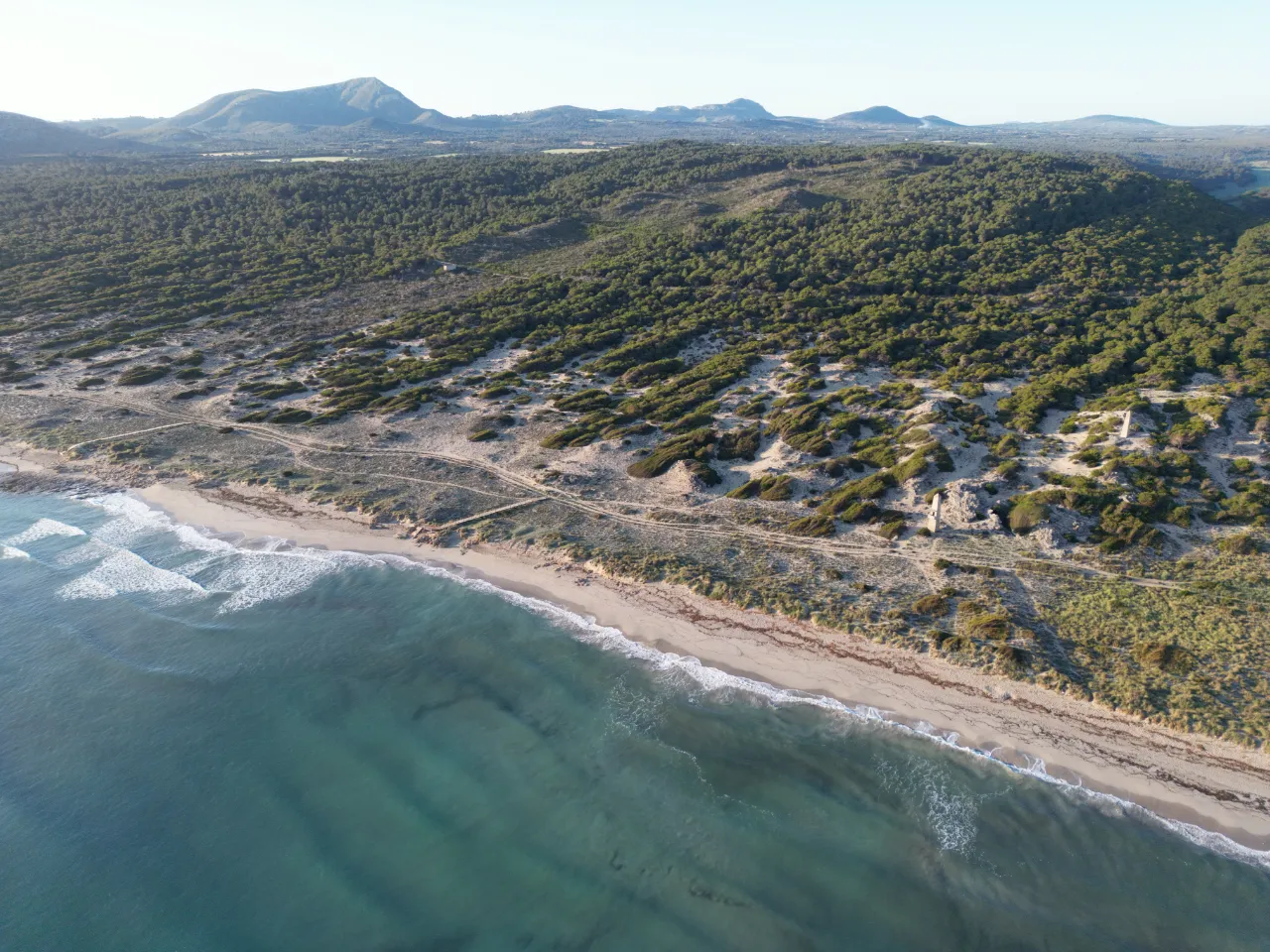TL;DR:
In Mallorca, short-term holiday rentals require a special license, but new licenses are no longer being issued. You can still buy properties that already have one. Long-term rentals (over 30 days) don’t need a license but must follow tenant laws. Renting without the proper license can lead to fines of €20,000 or more, so it’s essential to know the rules before you rent.
Curious about the details? Dive into the essentials below or contact an expert today ⇒
Mallorca remains one of the most attractive destinations in the Mediterranean for property investment and holiday rentals. With its strong tourism demand, year-round appeal, and premium rental yields, owning a property here can be highly rewarding, especially for those looking to generate income through short-term or seasonal lets.
However, rental laws in Mallorca have become more regulated in recent years. New rules, such as the Balearic Islands Tourism Law, have changed what’s being allowed when it comes to both long-term and vacation rentals. Property owners must now navigate a clear legal framework, including zoning restrictions and licensing requirements.
This guide will walk you through the key rental laws in Mallorca, so you can invest confidently and stay compliant.
Key Rental Laws in Mallorca, Simplified
Renting property in Mallorca comes with clear rental laws. These laws aim to protect both tenants and landlords. Property owners who want to offer holiday rentals must get a valid ETV license. They also need to follow zoning rules to ensure their properties are safe.
Long-term rentals have simpler legal rules and may have some tax benefits.
Long-Term vs. Holiday Rentals in Mallorca: What’s the Difference?
Step inside this rental in the desirable neighborhood of Son Espanyolet ⇒
If you’re thinking about renting out your property in Mallorca, the first thing to know is that not all rentals follow the same rules. There are two main types — and they’re treated very differently under local law.
Long-Term Rentals (Over 30 Days)
Long-term rentals fall under Spain’s Urban Lease Law (LAU), but the specific rules depend on the type of lease. If the tenant uses the property as their primary residence, the lease must allow for a minimum term of 5 years (or 7 years if the landlord is a company). Here’s what that means for you:
- You must provide a written rental contract
- A security deposit is required
- The property must be kept in good, livable condition
- You don’t need a special license
This option is simpler, with fewer restrictions, and many owners prefer it for steady income and less paperwork. It’s also a great choice if you’re targeting residents or looking for a long-term investment.
Holiday Rentals (Short-Term Stays)
These are short stays for tourists — usually less than 30 days — and they come with stricter rules.
- You’ll need an ETV license to rent legally
- The property must meet safety and quality standards
- It must be fully furnished, have separate utilities, and follow zoning laws
Note: The Balearic government has paused new holiday rental licenses until at least 2026. This means you can only operate short-term rentals if your property already has a valid license, or if you buy one that does.
Need help investing in a short term rental? Schedule a meeting ⇒
Also, zoning rules decide where short-term rentals are allowed. Some busy areas only allow rentals for 60 days a year — and only if you live in the property.
What Property Owners Need to Follow (Both Rental Types)
Whether you’re renting long-term or short-term, there are a few things you’ll need to stay on top of:
For holiday rentals:
Get a valid ETV license, check your zoning area, and make sure your property is listed legally.
For long-term rentals:
Follow LAU rules, provide a fair contract, and maintain the property properly.
Skipping any of this can lead to legal trouble — and in some cases, fines over €20,000. So it’s important to know where your property falls and what’s allowed.
Tip: Always check with your local council or a legal advisor to stay compliant.
Tax Implications for Long-term vs. Short-term Rentals
| Rental Type | Residents | Non-Residents | Additional Notes |
|---|---|---|---|
| Long-term Rentals | 60% tax deduction on net rental income | 19% tax (EU/EEA citizens) 24% tax (non-EU) | File quarterly using Modelo 210 |
| Short-term (Holiday) Rentals | Taxed under business income rules | May need to register as a business Subject to VAT and tourist tax | Tourist tax must be collected and paid Additional reporting required |
The tax rules for rentals in Mallorca differ greatly between long-term and short-term leases. Since January 2024, Modelo 210 for non-residents must now be filed once per year, not quarterly. The filing period is between January 1st and January 20th of the following year. However, residents get a big benefit with a 60% tax break on profits.
On the other hand, short-term vacation rentals come with more complicated tax responsibilities. Non-residents might need to set up a business, which means they have to follow corporate tax laws. Vacation rental owners also must collect tourism taxes from their guests and pay these to the tax authorities.
When choosing between long-term or short-term rentals, property owners need to think about tax costs as well as rental income. Picking the right rental option can help save money while making sure you follow Mallorca’s tax rules.
Holiday Rental Licenses in Mallorca: What You Need to Know
Explore a traditional Mallorquin villa for rent in Cala Major, Palma ⇒
If you want to rent out your property short-term in Mallorca, you’ll need an ETV license — no exceptions. This is the legal requirement for all vacation rentals (under 30 days), and the rules around it have tightened a lot in recent years.
Key Rules at a Glance:
- No license = no short-term rentals: Renting without an ETV license is illegal and fines start at €5,000, going up to €50,000+.
- The license is for the property, not the owner: It stays with the home. If you sell the property, the license can’t be transferred to another home.
- One person can only hold licenses for up to 3 properties: This is part of Mallorca’s effort to avoid over-tourism and speculative investing.
No New Licenses Until 2026 (At Least)
Since 2022, the Balearic government has put a pause on issuing new ETV licenses. The moratorium is expected to last until 2026 or longer, depending on zoning and environmental reviews.
So what can you do now?
The only way to operate a legal holiday rental is to buy a property that already has an ETV license. These homes are now in high demand and are often priced higher due to their legal rental status.
Tip: Always check that the license is active, up to date, and matches the guest capacity of the home before you buy.
Types of ETV Licenses
There are three kinds of ETV licenses in Mallorca, each with its own rules:
| License Type | Housing Type | Rental Limit | Validity | Notes |
|---|---|---|---|---|
| ETV | Single-family homes (villas, chalets) | All year | Permanent | Most flexible; highest cost (€3,500 per guest space) |
| ETVPL | Apartments or townhouses in shared buildings | All year | 5 years (renewable) | Requires approval from building community; €875 per guest space |
| ETV60 | Owner’s main residence (flat or house) | Max. 60 days/year (not July or August) | 5 years (renewable) | Only for principal residence; €290 per guest space |
License Costs (Before the 2022 Moratorium)
- ETV: €3,500 per guest space (Example: 1 bedroom for 2 people = €7,000)
- ETVPL: €875 per guest space
- ETV60: €290 per guest space
These prices are based on the number of guest places, not just the number of bedrooms.
Key Things to Remember:
- Short-term rentals (under 1 month) require an ETV license. Without it, you may only rent for 1 month or longer under the Urban Leasing Law (LAU).
- The moratorium on new licenses: Since 2022, the Balearic government has paused issuing new tourist licenses. This freeze will likely stay in place until 2026. Only homes with an existing license can be legally rented short-term.
- One person can only hold licenses for up to 3 properties.
- No license transfers between properties: If you buy a property with an ETV license, the license stays with that specific home.
- No license = no short stays: Renting a home without a valid ETV license for periods under 30 days is illegal, and fines start at €5,000.
Tip: Properties with existing ETV licenses are now highly valuable due to the limited supply and future restrictions. If you’re investing in a home for tourism purposes, it’s essential to check the license status and zoning rules before purchasing.
Your Legal Duties as a Landlord
Whether you’re renting long-term or short-term, there are clear legal responsibilities you need to follow in Mallorca. Not following them can get expensive — fast.
Long-Term Rentals (Over 30 Days)
If you’re renting your property long-term, the Urban Lease Law (LAU) kicks in. This law protects your tenants and lays out your obligations as the landlord:
- You must provide a written rental contract
- Tenants have the right to stay for at least 5 years (or 7 years if you’re a company)
- You can’t raise the rent freely — only under certain conditions
- The security deposit must be returned unless there’s damage
Long-term rentals are seen as residential housing, so the rules are stricter in favor of the tenant.
Explore our selection of properties for rent in upscale neighborhoods in Mallorca ⇒
Holiday Rentals (Under 30 Days)
Short-term tourist rentals follow a different set of rules. These must:
- Come fully furnished and equipped
- Include services like cleaning and basic amenities
- Follow tourism laws and ETV licensing rules
- Be in a legally permitted zoning area
Even for short stays, renters have the right to a safe and properly maintained property. And yes, they can file complaints if something’s off.
What Happens If You Break the Rules?
Renting out a property without the proper license or in a restricted area comes with heavy fines. The Balearic government has increased penalties to clamp down on illegal rentals.
Penalty Levels (2025 Update):
| Offence Level | Fine Range | Examples |
|---|---|---|
| Minor Offences | Warning up to €5,000 | First-time infractions; minor technical issues |
| Serious Offences | €5,001 to €50,000 | Renting without a license in an urban zone |
| Very Serious Offences | €50,001 to €500,000 | - Repeat illegal rentals - Renting on protected rural land - Renting government-regulated housing (e.g., VPO) |
Important: Renting on protected rural land or government-regulated housing (VPO) is considered a very serious offense.
You May Be Offered a Second Chance
There’s now a fine-reduction plan available. If you’re caught renting illegally but agree to stop and allow your home to be used for social or price-limited rentals for 5 years, the government may reduce your fine by up to 80%.
In short: follow the law, know your tenant responsibilities, and double-check your property’s rental eligibility. A legal rental is a profitable one — an illegal one can cost you dearly.
How to Secure a Rental License in Mallorca
Since 2022, the Balearic government has placed a moratorium on new holiday rental licenses. This means you can no longer apply for a new ETV license until the freeze is lifted (expected by 2026 at the earliest).
So, how can you still legally rent your property short-term?
The only way to get an ETV license now is to buy a property that already has one. ETV licenses are attached to the home, not the owner. When you purchase a licensed home, the license transfers with the property, as long as the rules are still being followed.
What to check before buying:
- Make sure the license is active and registered
- Confirm how many guest spaces it allows (based on rooms)
- Check for any zoning or building restrictions
- Review the property’s compliance with tourism laws
- If it’s a shared building (ETVPL or ETV60), confirm community approval
Buying a property with an existing ETV license is currently the only legal way to operate a short-term rental in Mallorca. Because of the moratorium, these homes are now in high demand, and often priced higher.
Tip: Work with a local expert or legal advisor to verify the license and avoid costly mistakes.
What Was the Process Before the Moratorium?
Before the freeze in 2022, property owners could apply for a license by following these steps:
Ensure the property met safety and quality standards, including a valid occupancy certificate (cédula de habitabilidad).
- Verify zoning eligibility with the local town hall (Ayuntamiento).
- Submit a DRIAT declaration, which officially states the intent to use the home for holiday rentals.
- Apply to the Balearic Tourism Board for the ETV license.
- Pay the required fee per guest space, based on the number of rooms and license type.
That process is no longer possible under current law, but may return if the moratorium is lifted in the future.
Impact of Rental Laws on Property Values
Mallorca’s rental laws have a direct impact on property value and investment potential. Homes that hold a valid ETV license are especially valuable, not just because they follow the law, but because they offer a rare legal path to enter the short-term rental market.
Why Short-Term Rentals Are in High Demand
In 2023, Mallorca was the number one most visited region in the EU for international tourists, ahead of Paris and Venice. That year alone, 302 million nights were spent in tourist accommodations across Spain, with Mallorca taking the top spot.
Because of this:
- Licensed holiday homes generate strong, year-round rental income
- Homes with ETV licenses often sell for more, as these licenses are no longer being issued
- These properties are in high demand by investors and second-home buyers alike
However, the 2022 moratorium on new licenses and strict zoning rules have limited supply, making licensed properties even more exclusive.
Long-Term Rentals: A Smart Strategy
For investors thinking long-term, renting under the Urban Leasing Law (LAU) is a reliable option:
- No license is needed for rentals of 1 month or longer
- Residents benefit from tax reductions, with up to 60% off taxable rental income
- It offers stable cash flow and avoids the restrictions placed on holiday lets
In short, whether you’re focused on high-income tourism rentals or steady long-term leasing, understanding Mallorca’s rental laws will help you make smarter choices and protect your property’s value.
Navigating Zoning Laws for Rentals in Mallorca
Mallorca uses a zoning system to regulate where vacation rentals are permitted. These rules are part of the PIAT (Mallorca Area Designation Plan) and aim to balance tourism growth with environmental protection and residential needs.
Properties fall under one of four zones: urban, coastal, rural, or protected. Each zone has different rules for short-term rentals. It is essential to know what is allowed in your area to avoid legal issues and fines, which can start at €5,000 or more, depending on the severity.
| Zone | Zone Description | 60-Day Holiday Rental (With Residence) | 365-Day Rental Single-Family Homes | 365-Day Rental Multi-Family Homes |
|---|---|---|---|---|
| Zone 1 | Vulnerable coastal tourist areas (e.g. Magaluf, Santa Ponsa) | ✅ Yes | ❌ No | ❌ No |
| Zone 2 | Remaining coastal areas (e.g. Port d’Andratx, Cala d’Or) | ✅ Yes | ✅ Yes | ✅ Yes |
| Zone 3 | Vulnerable inner-city areas (e.g. Deià, Valldemossa) | ✅ Yes | ❌ No | ❌ No |
| Zone 4 | Remaining inner-city areas (e.g. Inca, Santa Maria) | ✅ Yes | ✅ Yes | ✅ Yes |
| Zone 5 | Protected rural land | ❌ No | ❌ No | ❌ No |
| Zone 6 | Common rural land | ✅ Yes | ✅ Yes | ❌ No |
| Zone 7 | Excluded areas (e.g. airport zone, industrial parks) | ❌ No | ❌ No | ❌ No |
Helpful Notes
• In Zones 1, 2, 3, 4, and 6, a 60-day license requires the owner to live in the home.
• Multi-family homes always require approval from the building’s community association.
• Zone 5 and Zone 7 strictly prohibit holiday rentals.
• The moratorium on new licenses is still in place for some areas. Only properties with existing or pre-2017 applications may operate legally until new approvals resume.
• It’s unclear whether the 60 days must be used continuously or spread across the year — check with local authorities.
Conclusion
Understanding the rental laws in Mallorca is very important for anyone who wants to deal with property rentals, whether for a long time or just for vacation. Knowing the key rules and requirements will help you have a good renting experience and protect your investment. This includes things like required licenses and tax details. Being informed can keep you from getting into trouble and help you make smarter choices about your property. Remember, keeping up with local laws not only protects you but also helps the rental market in Mallorca. If you need help or personal advice about rental laws in Mallorca, don’t hesitate to ask for a consultation.
Looking to invest in Mallorca, schedule an appointment ⇒
Frequently Asked Questions:
What is the difference between long-term and vacation rentals in Mallorca?
Long-term rentals (lasting more than 30 days) are intended for residential use and must adhere to Spain’s Urban Lease Law (LAU), which stipulates that a formal rental contract must be in place. These rentals do not require a special license.
Vacation rentals, on the other hand, are short-term rentals offered to tourists and require a valid ETV license. The way you advertise your property matters, as it helps define whether your rental is considered touristic under the law.
Can I rent out my property in Mallorca without a license?
No, holiday rentals must have an ETV license issued by the Balearic government. According to the Balearic Islands Tourism Law, renting without this license is illegal and can lead to fines starting at €5,000. You can use tools like Holiday Rental Check Mallorca to see if your property is eligible. Always check zoning rules before listing your property.
How often do I need to renew my rental license?
If your ETV license was issued before July 2017, it must be renewed every six years. Licenses granted after 2012 often do not expire, but they may still require updates based on how the property is used or if any regulations change. Always confirm renewal requirements directly with the Balearic Tourism Board or a local legal advisor.
Can I get a new ETV license in 2025?
Currently, the Balearic government has paused issuing new ETV licenses in many areas due to zoning and sustainability limits. While existing licenses remain valid and transferable, new applications are limited. This makes licensed properties more valuable for buyers looking to invest in holiday rentals.








